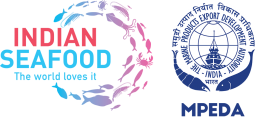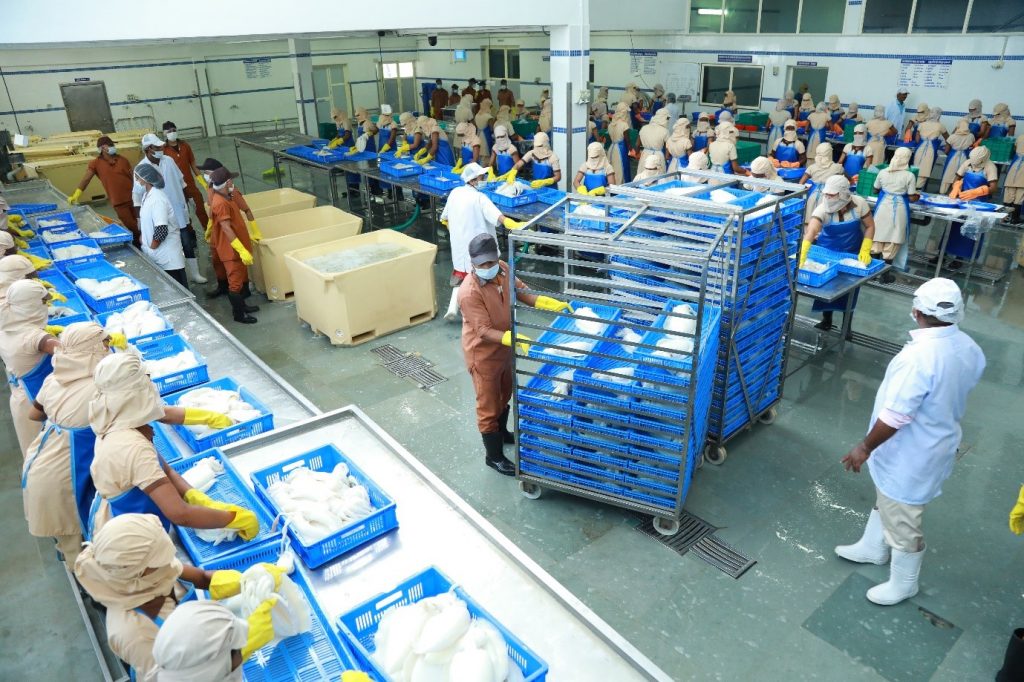The Indian seafood industry is booming, essentially supported and strengthened by strong regulations. The Marine Products Export Development Authority (MPEDA), the nodal agency for the enhancement of Seafood Export from India is instrumental in assuring that the production of Indian Seafood either from the Sea or from the farm, adheres to the regulations, keeping the standards and assuring quality.
Working Together for Stronger Oversight
MPEDA collaborates with other organizations like the Seafood Exporters Association of India (SEAI), the Coastal Aquaculture Authority (CAA), the Export Inspection Agency etc. to ensure Eco-friendly, sustainable and safe seafood production which is cherished by the global seafood market, especially the United States. These agencies operate together as a unit and under individual jurisdictions to set the standards and check the establishments in the seafood sector for adherence to those standards for assurance of the quality of the seafood the country produces and offers to the world.
Why Strong Regulations Matter
India has a robust regulatory framework for its 548 seafood units and it has set up world-class facilities in the fish processing sector, which are regularly inspected and monitored by various government agencies. These establishments are registered with MPEDA and approved by the Export Inspection Council (EIC). All the establishments are operating in compliance with the HACCP and adhere to the standards of the approval of the importing country.
The approval and renewal of approval will be done by the Approved Panel of Experts including approved auditors from MPEDA who will thoroughly audit the facilities, infrastructures, operations, quality control, products, instrumentations, health certifications of the workforce, amenities provided to them, documentation etc. In addition to the audits, sampling and tests will be conducted for the presence of pathogens or banned antibiotics.
Ensuring Transparency: Tracking Seafood from Source to Market
Upholding the right of a consumer to know how seafood items he is about to consume are produced, processed and marketed, MPEDA implements catch certification for sea-caught seafood and Enrolment for all the Aquaculture farms whose geo-locations are digitally incorporated in the farm enrolment database which is being collected and updated through MPEDA’s filed offices in farming states. The products from the enrolled farms will be subjected to tests for the presence of banned antibiotics and the products will be subjected to pre-harvest tests before harvest. A PHT Certificate will be issued to the products when they clear out the test for the presence of banned antibiotics. The enrolled farmers also practice Good Aquaculture Practices (GAP) or Better Management Practices (BMPs) which assure documentation of the inputs and operation and also the source of the inputs including the seed used in that particular crop.
Investing in Knowledge and Best Practices
MPEDA goes beyond just catching problems. They also help people in the sector learn the rules. They work with SEAI and CAA to create training programs that teach people about food safety, environmental responsibility, and fair treatment of workers.
Building a Sustainable Future
Working together with other agencies, MPEDA leads the way in making the Indian seafood sector thriving and making Indian seafood a trusted choice for people around the world. MPEDA commits itself to making the seafood export sector transparent, responsible and sustainable giving prime priority to the people who strive to produce and process it and people who relish the exquisite Flavors of it.

